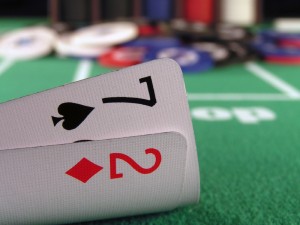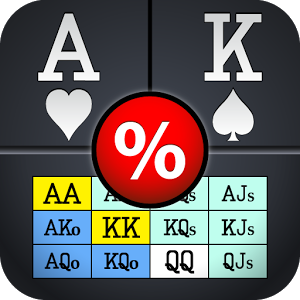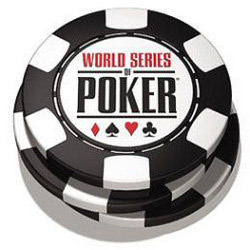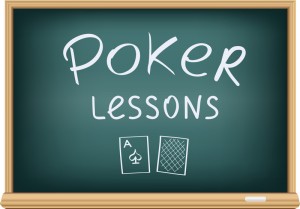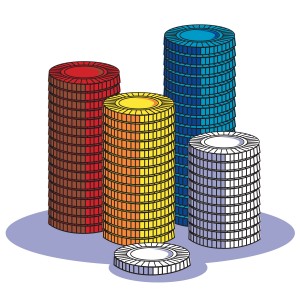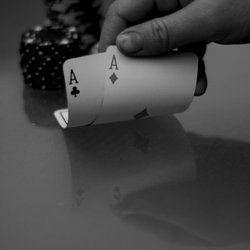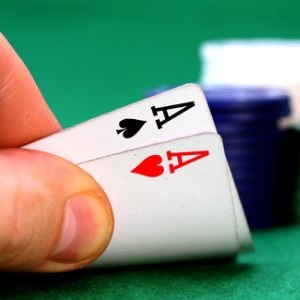Restealing is important
I recently won the Full Tilt Poker $750,000-guaranteed event under the moniker “IonlyplayAA.” My win earned me a little more than $132,000, as I weeded through more than 3,500 players. This tournament has been good to me this year, as I’ve had three top-100 finishes, two final tables, and now this big win.
There is no question that working on my latest book project with Eric “Rizen” Lynch, Jon ‘Pearljammer” Turner, and Jon “Apestyles” Van Fleet has helped to boost my game. One thing that I’ve learned from these guys is that I need to incorporate more resteals into my game.
Some of the ideal conditions for attempting resteals with weak hands include:
- Your opponent is in late position.
- Your opponent raises frequently with a wide range of hands.
- Your opponent folds frequently to reraises.
- You have a hand that will likely have two live cards if called, or a hand like A-X that will have at least one live card against pocket pairs (unless you’re up against aces).
- You have a stack that can cripple your opponent.
- You have a stack size with which you can safely fold if your opponent four-bets.
- You are in a bubble situation or late in a tournament, when there is more pressure on your opponent.
The value of the pot will add significant value to your stack. There are situations in which you can add 50 percent to your stack while still having fold equity.
Of course, it is difficult to find situations that meet all of these conditions. With a short stack, you sometimes need to take calculated risks even though you might be risking your tournament life.
Here are five hands from my road to victory. Some of my decisions are debatable, as all of the conditions above weren’t met, but they all significantly increased my stack at key times during the tournament.
Hand No. 246
The blinds were 400-800 with 100 antes. I had about 12,000 in chips and was sitting in the hijack position. The player immediately to my right opened for 2,222. Successfully stealing this pot would add about 33 percent to my stack. Note that even without a hand, if I pushed all in and was successful in stealing the pot 75 percent of the time, I would break even from a chip perspective. This particular opponent was raising slightly on the loose side. I was holding 9-8, which is a relatively decent hand to play if I was called, as both of my cards would have been live against hands like A-K or A-Q suited.
However, some factors were working against me. This particular opponent had close to 30,000 in chips, so losing 12,000 wouldn’t cripple him. Additionally, my opponent was in middle position, so his range wasn’t as wide as a late-position player’s range. Also, since I was in the hijack position, there were four players behind me who could wake up with a hand. Finally, I would have preferred my hand to be suited.
Nevertheless, there was a high likelihood that my opponent would fold most of his range, and if he called, my hand would match up OK against A-K or A-Q, a large portion of his calling range. Given the potential 33 percent increase to my stack, I reraised to 7,000, clearly committed, and my opponent pushed me all in with A-A. To win a tournament, sometimes you need to get lucky, and my 9-8 made a straight, doubling me up.
Hand No. 370
The blinds were 2,500-5,000 with 600 antes. I was sitting in the big blind with 10-8 and 94,000, and my opponent in the cutoff had 74,000. He raised to 13,000. A successful resteal would increase my stack by 25 percent. Most of the criteria for a good resteal were present: (1) My opponent was in late position, indicating a wide range of hands; (2) My opponent was a rather loose player; (3) There was no one behind me who could wake up with a hand; and (4) I would likely have two live cards if called.
However, a reraise in this situation was quite risky, because I had to call if my opponent put me all in, due to the pot odds. In this particular situation, I believed that my opponent’s range was quite wide and that I would be able to get him to fold a great majority of the time. I reraised to $32,000, and my opponent folded.
Hand No. 397
The blinds were 4,000-8,000 with 1,000 antes. I had 177,000 in chips, with my opponent sitting on 364,000. He raised from the cutoff to 20,500. Again, my opponent was in late position, and I held 6-5 suited, which would play well if he called. The downside to this play was that I would be faced with a tough decision if he pushed me all in. I reraised to 60,000, he folded, and I increased my stack by 20 percent.
Hand No. 542
There were only 10 players left in the tournament, and my table was fivehanded. I had 1.7 million in chips, and my opponent had 1.4 million. The blinds were 25,000-50,000 with 6,000 antes. The cutoff raised to 122,000. In this particular situation, I actually had a decent hand in the big blind with A-Q. I reraised to 322,000, and my opponent folded. I picked up more than 200,000 and increased my stack by almost 15 percent.
Hand No. 607
We were at the final table, and it was sixhanded. The blinds were 40,000-80,000 with 10,000 antes. I was sitting on 2.4 million, the under-the-gun player had 2.6 million, and the player on his left had 1.4 million. The under-the-gun player raised to 240,000, the next player called, and it was up to me in the small blind. I knew that the caller was not capable of calling as a slow-play with a premium hand, and I was fairly confident that he would fold to any reraise. If I could get past the initial raiser, I could pick up a pot of 660,000, adding about 25 percent to my stack. In this situation, my reraising range was pretty wide, but my decision was an easy one, as I was dealt A-Q. I reraised to 1 million, and took down a nice pot.
Note that in some of these hands, I look like a donkey when called. I was risking my tournament life in return for being able to increase my stack 15 percent-35 percent. As the 9-8 hand demonstrated, sometimes you will get lucky and be able to double up. One counterargument to these loose-aggressive plays is that you sometimes have plenty of time to wait for a better hand. That is true, but if you never make these types of plays, you probably won’t get paid off very much when you do get a premium hand.
Submit your review | |



